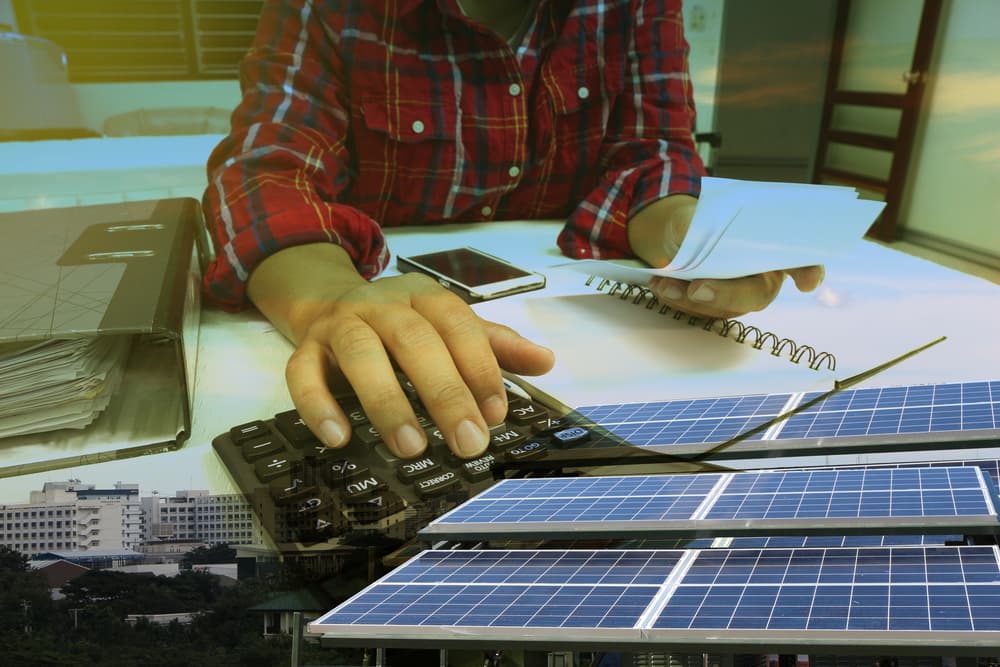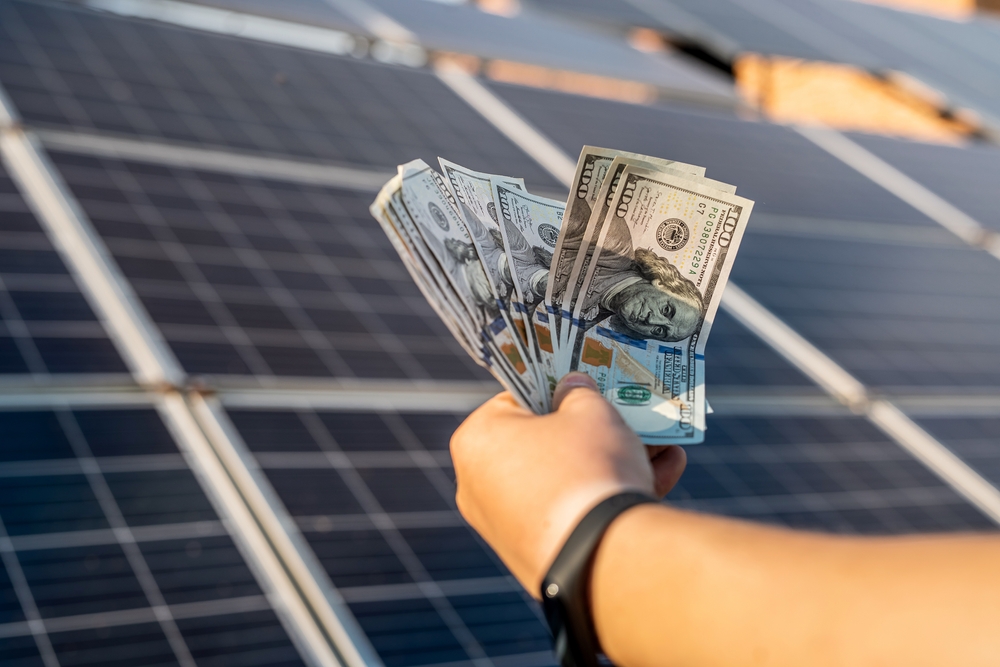
You may have recently invested in solar panels to reduce your carbon footprint and save money on energy costs. However, seeking legal guidance is crucial if you suspect you are a victim of solar panel financing fraud. These scams can have profound financial implications, and protecting your rights and interests is essential.
The solar panel industry has gained a reputation as predatory and opaque. You may see rudimentary signs on the side of the road, trying to sell you solar panels. You should be extremely careful before signing any binding contract, because you may get far more than you bargained for when you finance solar panels.
Solar panel companies make money on more than just installing and selling you the panels. In many cases, they greatly magnify their profits by getting you to finance your panels through them or their “trusted partner.” In reality, they are finding a way to make you pay exorbitant rates and fees. You may have the solar panels you have long wanted, but you are also stuck with excessive payments in a long-term contract that you still need to pay, even after your solar panels have passed their useful life.
If someone has sold you an abusive and predatory solar panel loan, there are steps that you can take to fight back. If you are a solar panel financing fraud victim, you can file a lawsuit, seeking damages and possibly getting out of the contract. You must show that the solar panel financing company misled you or made material misrepresentations that led to you agreeing to the onerous loan contract.
You should speak with a Dallas solar panel financing fraud attorney to determine your potential legal options. Your solar panel financing fraud lawyer can explore the possibility of filing a lawsuit on your behalf. Solar panel companies are not expecting you to fight back, but they will know that you mean business when you hire an experienced lawyer for your case.
An attorney with experience in financial fraud cases can provide invaluable legal advice and support to protect your rights and ensure you receive the compensation you deserve. From reviewing your financing agreements to representing you in court, an experienced attorney can be your strongest advocate in recovering any losses from solar panel financing fraud.
Contact Us for a Free Consultation

Solar panel financing allows homeowners and businesses to install solar energy systems without paying the full upfront cost. Instead, they spread the expense over time through loans, leases, or power purchase agreements (PPAs). Understanding how these financing options typically work can help consumers make informed decisions. Here are some ways you may have afforded solar panels for your home.
With a solar loan, you borrow money to purchase the solar panel system outright. You then repay the loan in monthly installments, often with interest. You can secure these loans (using your home as collateral) or choose not to secure them. Because you own the system, you benefit from tax credits, incentives, and increased home value. After you pay off the loan, your electricity savings increase significantly. Solar loans often come with high interest rates and fees added on that raise the amount you need to pay. You may end up paying back several multiples of the original cost of the loan over its life.
In a solar lease, you do not own the system. Instead, you pay a fixed monthly fee to use the solar panels on your property. The leasing company owns and maintains the system; you typically pay less upfront. However, you may not be eligible for tax credits, and long-term costs can be higher than buying.
Under a PPA, you agree to buy the electricity the solar panels generate at a set rate, usually lower than your utility’s rate. Like leases, you do not own the system, and the provider handles maintenance. PPAs offer low upfront costs, but may include escalator clauses that increase rates over time.
You may also hear that you can become a power seller if your panels produce more energy than you need for your home. Solar panel companies often rely heavily on using PPAs in their marketing, telling you they can pay for the cost of your panels by selling excess energy to the power company.
Contracts should clearly outline payment terms, maintenance responsibilities, and any fees, regardless of the financing method. Many financing agreements last 15 to 25 years. It is important to review these terms carefully and understand your obligations.
Solar financing makes clean energy accessible, but requires careful consideration to avoid costly surprises. Consulting with trusted professionals and comparing options ensures you choose the best path for your energy needs and budget.
Solar panel financing fraud takes many forms, and understanding common examples can help consumers avoid costly scams. Here are several typical types of fraud encountered in solar panel financing:
Recognizing these red flags is critical. Consumers should thoroughly research companies, read contracts carefully, and seek legal advice if they suspect fraud.

If you are a solar panel financing fraud victim, several legal and practical remedies are available to help you recover losses and protect your rights. Acting promptly and understanding your options can make a significant difference in resolving the issue.
Proactively seeking professional help is vital when dealing with solar panel financing fraud. These remedies can help you regain control, minimize financial harm, and hold fraudulent companies accountable.
Lawsuits for fraud in solar panel financing have become increasingly common as consumers invest in solar energy systems and encounter deceptive business practices. These legal actions seek to hold dishonest companies accountable and compensate victims for financial losses, damages, and unfair contracts.
Solar panel financing fraud lawsuits typically arise when companies engage in false advertising, misrepresent the costs or benefits of solar systems, or hide unfavorable contract terms. Plaintiffs often allege that the solar panel company promised low monthly payments, significant energy savings, or tax incentives that did not materialize. Common claims include bait-and-switch tactics, undisclosed fees, inflated system costs, and unauthorized credit checks.
Victims may file lawsuits under various legal theories, such as breach of contract, fraud, negligent misrepresentation, or violations of consumer protection laws like the Federal Trade Commission Act or state “lemon laws.” Many states have specific statutes to prevent deceptive business practices, which plaintiffs can invoke to seek rescission of contracts, refunds, and monetary damages.
In solar panel financing fraud cases, courts examine evidence including contracts, marketing materials, communication records, and expert testimony to determine if the company engaged in deceptive or unfair conduct. Plaintiffs often seek to recover the amount paid, damages for financial harm, and attorney’s fees.
Some lawsuits result in class action settlements when multiple consumers are affected by the same fraudulent practices. Parties may resolve the lawsuit through mediation or arbitration, especially if the financing agreement contains dispute resolution clauses. Regardless, you have the legal right to present your case in some forum, and you can qualify for relief if the solar panel financing company breaks the law.

A solar panel financing fraud lawyer is invaluable in helping victims handle the legal challenges associated with deceptive solar financing schemes. Their experience enables clients to understand their rights and pursue the best possible outcomes.
First, these solar financing fraud attorneys thoroughly review contracts, financing agreements, and promotional materials to identify unfair terms, hidden fees, or misrepresentations. They analyze whether the solar company violated consumer protection laws or breached contractual obligations in the sales or loan process.
Once they identify the issues, fraud lawyers advise clients on the most effective legal options. This advice can include negotiating directly with the solar company for contract cancellation, refunds, or reduced payments. Skilled lawyers often leverage their knowledge of regulatory agencies to assist clients in filing complaints with the Federal Trade Commission (FTC), state attorneys general, or consumer protection bureaus.
If informal resolution fails, a lawyer can represent the client in formal legal proceedings. They prepare and file lawsuits alleging fraud, breach of contract, or deceptive trade practices. Throughout litigation, the lawyer gathers evidence, coordinates expert testimony, and advocates aggressively to secure compensation for financial losses and damages.
Additionally, a solar panel financing fraud lawyer helps protect clients’ credit and financial standing. They may work with credit reporting agencies to dispute erroneous entries resulting from fraudulent financing.
Ultimately, hiring a solar panel fraud lawyer ensures victims do not face these complicated disputes alone. Their legal guidance and advocacy increase the chances of recovering losses, canceling unfair contracts, and holding fraudulent companies accountable. A dedicated solar financing fraud attorney provides peace of mind and helps clients rebuild trust in clean energy investments.
Contact Us for a Free Consultation